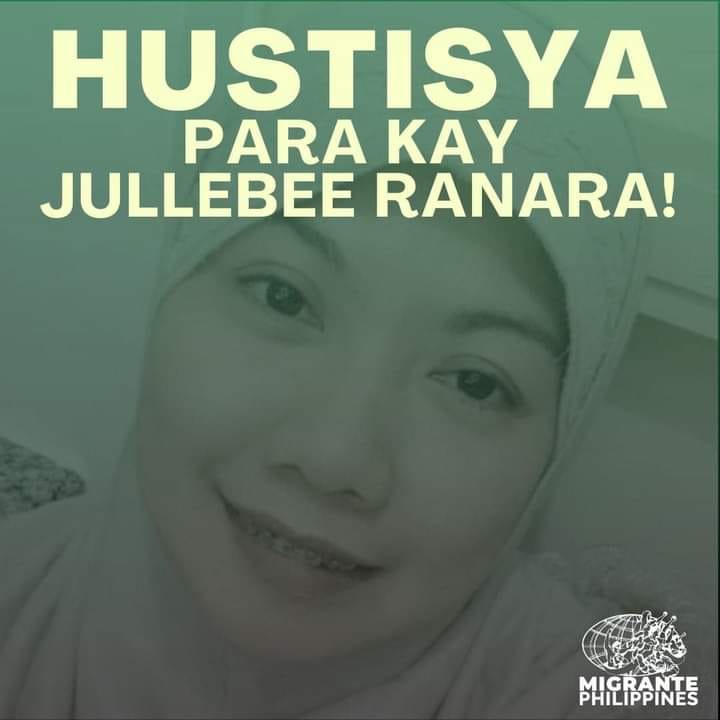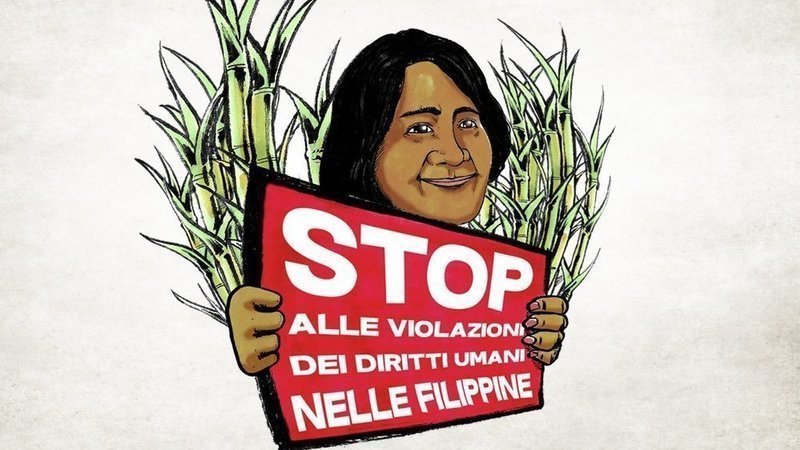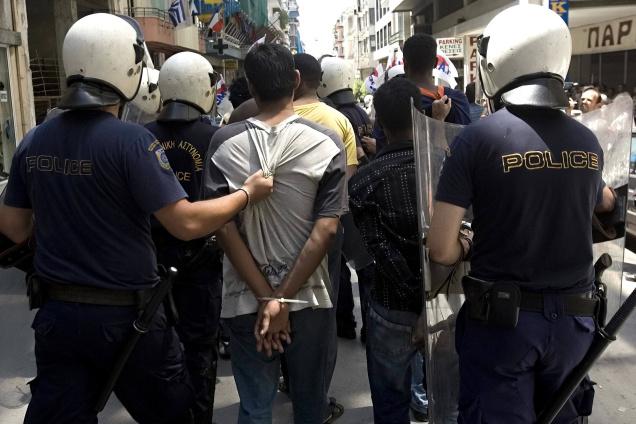The International Peoples’ Tribunal on the Crimes of the Philippine and US Governments Against the Filipino People (IPT 2015) is being convened at the behest mainly of victims1 of human rights violations and other crimes committed under the Presidency of Benigno S. Aquino III in the Philippines and President Barack Obama in the United States.
These entities shall be brought before a court of public opinion where concrete evidence shall be presented of their violations of the Filipino people’s individual and collective rights under international law. They will be brought for judgment before the broadest possible international audience.
The IPT 2015 embodies the right of peoples to hold states to account. It stems from the failure of the Philippine State and international institutions to uphold standards as embodied in Philippine as well as international laws and instruments under International Human Rights Law including the core human rights conventions and the Comprehensive Agreement on Respect for Human Rights and International Humanitarian Law (CARHRIHL) signed in 1998 by the Government of the Republic of the Philippines (GPH) and the National Democratic Front of the Philippines (NDFP).
The IPT 2015 derives its legitimacy from the people as the ultimate source of the authority of all national and international laws. Its verdict shall be based on a thorough and fair assessment of the evidence by leading public figures of recognised achievement and high moral stature, in accordance with applicable legal standards.
The Peoples’ Tribunal draws inspiration and builds on the gains of previous peoples tribunals convened to condemn similar crimes by previous regimes in the Philippines. These include, among others, the:
• Permanent Peoples’ Tribunal (First Session on the Philippines) [PPT1] of 1980 in Antwerp, Belgium (“Repression and Resistance, “ against the dictatorship of Ferdinand Marcos at the suit by NDFP and the Moro National Liberation Front or MNLF)
• International Solidarity Mission- International People’s Tribunal [ISM-IPT] of 2005 in Manila (“In Defense of a People Fighting Repression; against human rights violations by
1 The victims and their relatives — belonging to a wide spectrum of social classes and sectors in Philippine society – are represented by the Ecumenical Voice for Human Rights and Peace in the Philippines (EcuVoice), KARAPATAN (Alliance for the Advancement of the People’s Rights), Hustisya! (Victims United for Justice), DESAPARECIDOS (Families of the Disappeared for Justice), SELDA (Society of Ex-Detainees Against Detention and Arrest), BAYAN (New Patriotic Alliance), Kilusang Magbubukid ng Pilipinas (Peasant Movement of the Philippines) among others.
President Gloria Macapagal-Arroyo);
Permanent Peoples’ Tribunal (Second Session on the Philippines) [PPT2] of March 2007 in The Hague, The Netherlands (The Filipino People vs. Gloria Macapagal-Arroyo, George W. Bush, et.al: indicting the US-backed Arroyo regime for human rights violations, economic plunder and transgression of Philippine sovereignty); and
International Migrants Tribunal [IMT] of November 2012 in Manila (In Defense of Migrant Workers’ Rights: counterpoint to the Global Forum on Migration and Development)
The verdicts of these tribunals delivered strong moral and persuasive force. Their conclusions and recommendations were transmitted to the United Nations, various Parliaments and governments, as well as broad international organizations to add pressure on the Philippine government to stop the killings and other gross human rights violations in the country.
The resulting international uproar against the spate of extra-judicial killings under the term of President Arroyo, for instance, contributed to a decrease in the incidence of such killings in the latter part of 2007. The temporary decline was a very welcome respite for the Filipino people under siege.
Holding the hearings and gathering support especially from the peoples of the US are particularly strategic because of the US government’s historical and decisive influence in Philippine affairs.
In 2007, US Senator Barbara Boxer, Chair of the Sub-Committee on East Asian and Pacific Affairs of the Senate Committee on Foreign Relations, acknowledged in a U.S. Senate hearing, “It is important we (Americans) do not have blood on our hands. . . . If we are training the (Philippine) military with our hard-earned tax dollars, our concern about the military cannot be discounted . . . the war on terror cannot be used as an excuse to kill innocent civilians.”
The International Peoples’ Tribunal (IPT) in 2015 shall help raise national and international public visibility of the ongoing violation of people’s rights in the Philippines, exercise moral suasion and help generate further political pressure on the governments of the Philippines and the US to end impunity.
OBJECTIVES:
The overall objective of the IPT 2015 is to expose the crimes not only of the current Philippine government as represented by President Benigno Simeon Aquino III against the Filipino people but also those of the US government, under the watch of President Barack Obama.
Specifically, the IPT aims to:
− Exert greater international pressure on the Philippine and US governments to stop human rights violations in the Philippines, including extrajudicial killings and disappearances;
− Establish by sufficient credible evidence according to international norms and standards that these violations are part of state policy which is being perpetrated with impunity by the Armed Forces of the Philippines (AFP), Philippine National Police (PNP), and paramilitary and armed groups under their command and control;
− Establish the complicity of the Commander-in-Chief Aquino and the top military and police officials in the killings, disappearances and other gross human rights abuses;
− Show the various systematic and systemic violations of economic, social and cultural rights of the Filipino people through the imposition of exploitative policies and programs;
The complaints and presentations shall consist of the following:
Violations of human rights, particularly civil and political rights, with focus on extrajudicial killings, disappearances, massacres, torture, arbitrary arrests and detentions as well as other vicious, brutal and systematic abuses and attacks on the basic democratic rights of the people.
Violations of human rights, particularly economic, social and cultural rights of the Filipino people through the imposition of imperialist globalization to exploit the people; transgression of their economic sovereignty and national patrimony; various forms of economic plunder and attacks on the livelihoods of the people and the destruction of the environment.
Violations of the rights of the people to national self-determination and liberation through the imposition of the US war of terror; US military intervention; as well as the perpetration of crimes against humanity and war crimes; misrepresentations of the people’s right to national liberation and self-determination as “terrorism” and the baseless “terrorist” listing of individuals, organizations and other entities by the US and other governments.
July 16 to 17, 2015: Hearings
July 18, 2015: Deliberation and Presentation of the Verdict July 20, 2015: Service of the Verdict
Washington D.C.
Oral Presentation of Evidence under oath (either by affidavits or depositions) by victims and experts
on very select illustrative cases for each issue (either in person or through web though other cases can be submitted through documentary evidence)
Issues and Charges (Initial)
Violation of Civil and Political Rights
Human Rights Violations and Impunity
Political prisoners
Marcos victims’ compensation beneficiaries (delisted victims)
Violations of International Humanitarian Law
Violation of Socio, Economic and Cultural Rights
Hacienda Luisita
Yolanda, Pablo and Sendong typhoons
Labor contractualization
Urban poor demolitions
Power rate hikes and other basic services
Migrants/OFW cases
Privatization of public hospitals
Environmental
Mining
Corruption
Onerous trade agreements; neoliberal globalization, economic plunder
Charter change to open up of economy to increased foreign exploitation
Violation of the Right to Self-Determination and the Right to Resist
Oplan Bayanihan
EDCA and US military intervention (case of Jennifer Laude)
GPH-NDFP Peace Negotiations
Some Cases carried over from the term of President Gloria Macapagal-Arroyo
EJK
Enforced Disappearance
Torture
Legal Bases
National and International Instruments including 1948 Universal Declaration of Human Rights, 1966 International Covenant on Civil and Political Rights (ICCPR), 1966 International Convention on Economic, Social and Cultural Rights (ICESCR), Convention against Torture and related instruments, Convention against Enforced and Involuntary Disappearance, 1990 Convention on the Rights of the Child, 1977 Standard Minimum Rules for the Treatment of Prisoners, 1976 Universal Declaration of the Rights of Peoples (Algiers Declaration), 1949 Geneva Conventions, 1977 Protocols 1 and 2, 1992 Hague Joint Declaration, 1995 Joint Agreement on Safety and Immunity Guarantees (JASIG), 1998 Comprehensive Agreement on Respect for Human Rights and
International Humanitarian Law (CARHRIHL), Rome Statute of the International Criminal Court, among others.
Organization of the Tribunal:
Conveners:
International Coalition for Human Rights in the Philippines (ICHRP) International Association of Democratic Lawyers (IADL)
National Lawyers Guild
IBON International
Concerned international organizations and networks who have come together to organize and convene the International Peoples’ Tribunal on Crimes of the US-Aquino Government Against the Filipino People.
Endorsers, Partners and Sponsors:
Personages and representatives of institutions and organizations who are interested in the issues of peoples’ rights, human rights and international law, and who wish to extend moral support and concrete assistance to the Tribunal, shall be invited to become Endorsers, Partners and Sponsors to the Tribunal. They will also endorse the Tribunal to their existing contacts and assist the organizers in reaching out further to the international community.
Plaintiffs/Complainants:
Representatives of the Filipino people: victims of the crimes of the US-Aquino regime; HR groups, various people’s organizations and their contituencies
Ecu Voice (Ecumenical Voice for Human Rights and Peace in the Philippines)
Karapatan (Alliance for the Advancement of Peoples’ Rights)
Hustisya (Pagkakaisa Ng Mga Biktima Para Sa Hustisya Inc. or Unity of Victims for Justice)
Selda (Samahan ng Ex-Detainees Laban sa Detensyon at Aresto or Society of Ex-Detainees
Against Detention and Arrest)
Desaparecidos (Families of the Disappeared for Justice)
Bayan (Bagong Alyansang Makabayan or New Patriotic Alliance)
KMU (Kilusang Mayo Uno or May 1st Movement)
KMP (Kilusang Magbubukid ng Pilipinas or Philippine Peasant Movement)
Gabriela – Alliance of Filipino Women
KADAMAY (Kalipunan ng Damayang Mahihirap or National Alliance of Filipino Urban
Poor)
other mass organizations and individual victims in the Philippines and abroad
Defendants:
Philippine President Benigno Simeon S. Aquino III
US Government as represented by President Barrack Obama
International Monetary Fund
World Bank
World Trade Organization
Multinational Corporations
Judge/s:
1- 3 international personages or eminent person/s with at least 1 with a legal background
Jurors:
9 – 11 individuals of diverse backgrounds and different disciplines, with at least 3 with a legal background; representing the peoples of the world
Judges and Jurors composed of internationally distinguished personages will sit in the Tribunal. They shall formulate the verdict and pass a judgement at the end of the Tribunal. They shall also discuss these at a press conference.
Prosecutors/Legal counsels to victims and witnesses:
National Union of Peoples’ Lawyers (NUPL)
Public Interest Law Center (PILC)
Individual (international) lawyers
Defense Lawyers (will be assigned by the Tribunal if no appearance from Defendants)
Clerk of Court and Deputy Clerks of Court
IPT 2015 Secretariats: Two secretariats have been constituted to assist the conveners: The Philippines Coordinating Secretariat which shall perform the staff work for the Tribunal preparations in the Philippines and the International Coordinating Secretariat to serve as the center of communications for all entities involved in the project and to coordinate the technical and other preparations for holding the tribunal, including financial and political support. These 2 secretariats are headed by Paul Quintos of IBON International and Dr. Angie M. Gonzales of the International Coalition for Human Rights in the Philippines respectively.
For more information and updates: www.internationalpeoplestribunal.org
—
==========================
Mr. Ramon Bultron
Managing Director
Asia Pacific Mission for Migrants (APMM)
President
World Association for Christian Communications – Asia Region (WACC-AR)
Office Address: G/F, No. 2 Jordan Road, Kowloon, Hong Kong SAR
Telephone: +852-2723-7536
Fax: +852-2735-4559
Email: apmm@apmigrants.org, ramon@apmigrants.org
Website: www.apmigrants.or





